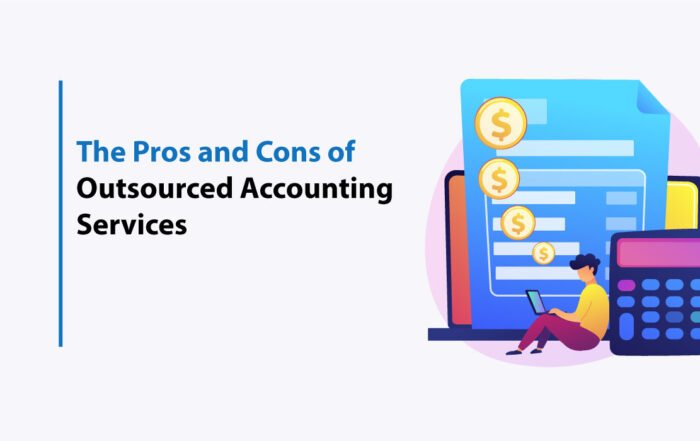Real estate accounting is the cornerstone of successful real estate investment. In this comprehensive guide, we’ll explore the essentials of it, key financial metrics, tax implications, the role of accounting software, and delve into the significance of real estate accounting for agents.
What is Real Estate Accounting?
Real estate accounting involves the systematic recording, analysis, and interpretation of financial information related to real estate transactions. It goes beyond general accounting principles to address the unique complexities of the real estate industry. Investors and agents alike rely on accounting processes for real estate to make informed decisions, track performance, and ensure compliance with financial regulations.
Why Do Real Estate Agents Need Accounting?
Financial Management and Decision-Making
Real estate agents handle various financial transactions, including commissions, marketing expenses, and client reimbursements. Effective real estate accounting practices enable agents to manage their finances efficiently, allocate resources wisely, and make strategic decisions to grow their business.
Compliance and Reporting
Real estate transactions involve legal and regulatory requirements. Accurate real estate accounting ensures that agents comply with tax regulations, licensing standards, and other legal obligations. It also facilitates the preparation of financial reports, which may be required for audits or business evaluations.
True Goal of Real Estate Accounting
The true goal of real estate accounting extends beyond mere record-keeping. It serves as a strategic tool for achieving long-term success in the real estate market. The primary objectives include:
Profitability Assessment
It allows investors and agents to assess the profitability of individual properties or the overall business. This involves evaluating income streams, identifying cost-saving opportunities, and optimizing financial strategies to maximize returns.
Risk Management
Understanding the financial health of real estate investments helps in identifying and mitigating risks. Whether it’s market fluctuations, unexpected expenses, or changes in regulatory environments, it provides the insights needed to proactively manage risks.
Importance of Real Estate Accounting
Informed Decision-Making
Accurate and up-to-date financial information empowers real estate professionals to make informed decisions. Whether it’s deciding on property acquisitions, setting rental rates, or planning marketing campaigns, real estate accounting data provides the foundation for strategic choices.
Investor Confidence
Investors, whether individual buyers or large institutions, seek transparency and accountability. Sound real estate accounting practices enhance investor confidence by providing clear financial visibility, demonstrating professionalism, and fostering trust.
Key Financial Metrics in Real Estate Accounting
Net Operating Income (NOI)
Net Operating Income (NOI) is a fundamental metric for real estate investors. By subtracting operating expenses from rental income, investors can assess the property’s profitability. Calculating NOI provides a clear picture of the property’s financial performance.
Capitalization Rate (Cap Rate)
The Cap Rate is a key metric for evaluating the return on an investment property. Understanding how to calculate and apply cap rates empowers investors to make informed decisions about potential acquisitions. Factors such as location and property type can influence cap rates.
Cash-on-Cash Return
Cash-on-Cash Return measures the annual return on investment relative to the amount of cash invested. Investors can use this metric to assess the performance of their real estate investments, taking into account financing and operational costs.
Real Estate Accounting Software
Benefits of Real Estate Accounting Software
Its software streamlines financial processes, enhancing accuracy and efficiency. Investors can benefit from features such as automated bookkeeping, expense tracking, and financial reporting.
Popular Real Estate Accounting Tools
Several tools cater specifically to real estate investors. QuickBooks, Buildium, and AppFolio are popular choices, offering features tailored to the unique needs of property management and processes for real estate
Challenges in Real Estate Accounting
It comes with its set of challenges. From dealing with fluctuating property values to managing multiple income streams, investors and agents face complexities that require astute financial management.
conclusion
In conclusion, real estate accounting is a strategic cornerstone for investors and agents alike, providing the essential framework for navigating the intricacies of the dynamic real estate market. Understanding the true goals and importance of effective real estate accounting practices is paramount for building a solid financial foundation. At Lint Advisors, we recognize the pivotal role of real estate accounting, offering expert guidance and innovative solutions to help you achieve financial success. Whether you’re a seasoned investor or a burgeoning real estate professional, trust Lint Advisors to be your dedicated partner in maximizing returns through expert accounting strategies.
7 Ways a CFO Can Improve Cash Flow Management
Cash flow management is essential for the survival and growth of any business. Proper cash flow involves the ability to pay the dues, the capacity to reinvestment, and the overall sound health of the firm. [...]
The Pros and Cons of Outsourced Accounting Services
In today’s business world, financial management plays a crucial role in determining the success of any organization. Businesses, from startups to established companies, often face the challenge of managing their finances efficiently. Accounting services are [...]
Top Tax Filing Mistakes—and How to Avoid Them
Tax season can be a stressful time for many individuals and businesses. With complex rules and regulations, it's easy to make mistakes that could cost you money or even lead to legal troubles. This blog [...]





